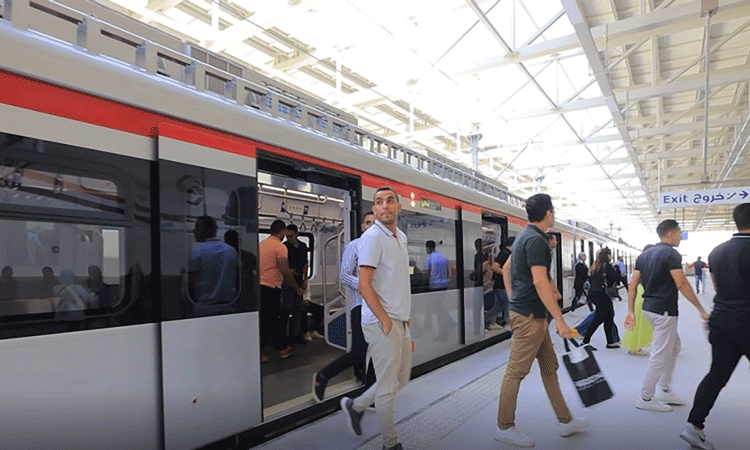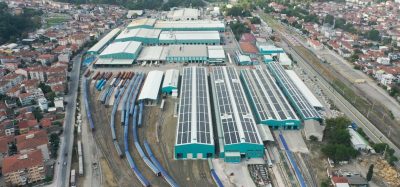EU rail passenger travel rises to record levels in 2024 while freight sees slight decline
Posted: 31 October 2025 | Gabriel Higgins | No comments yet
EU rail passenger transport reached 443 billion passenger-kilometres in 2024, with Germany leading, while freight performance fell slightly to 375 billion tonne-kilometres.


In 2024, rail passenger transport in the EU reached 443 billion passenger-kilometres (pkm), up from 419 billion in 2023, representing an increase of 5.8%. This is the highest level recorded by main rail undertakings since Eurostat began collecting data in 2004.
Germany carried the largest number of passengers, with 2,904 million, followed by France with 1,320 million and Italy with 843 million. At the lower end of the scale, Lithuania carried 5 million, Estonia 8 million, and Greece 14 million passengers. Hungary recorded the highest growth rate in passenger numbers at 60.0%, followed by Latvia at 13.9% and Ireland at 10.0%. In contrast, Romania and Bulgaria experienced declines of 4.9% and 3.1% respectively.
When adjusted for population, Luxembourg had the highest passenger-per-capita ratio at 32.8, followed by Denmark at 31.0 and Germany at 30.0. The lowest ratios were observed in Greece and Lithuania, both at 1.5, followed by Bulgaria and Romania at 3.6.
Join our free webinar: Rail cyber-security in a time of technological and regulatory transformation
Join our expert panel, including speakers from Nokia and Siemens Mobility, to explore the critical convergence of cybersecurity and 5G rail comms.
Date: 3 Dec | Time: 15:00 GMT
Can’t attend live? No worries – register to receive the recording post-event.
In rail freight transport, the EU saw a slight decline, reaching 375 billion tonne-kilometres (tkm) in 2024, down from 378 billion tkm in 2023, a decrease of 0.8%. Germany led freight performance with 126,320 million tkm, followed by Poland with 56,713 million tkm and France with 32,249 million tkm. Ireland, Luxembourg, Greece and Estonia all recorded less than 1,000 million tkm.
The main goods transported by rail in the EU in 2024 were metal ores (12.2%), coke and refined petroleum products (10.1%), and basic metals and fabricated metal products (8.9%).
These figures highlight continued strong growth in passenger rail travel across Europe, particularly in Central and Northern Europe, while freight transport shows a slight decline, reflecting broader shifts in supply chains and cargo demand. Rail continues to play a key role in sustainable transport and regional connectivity across the EU.
OUT NOW: The Definitive Guide to Rail’s Digital Future
The rail industry is undergoing a digital revolution, and you need to be ready. We have released our latest market report, “Track Insight: Digitalisation.”
This is not just another report; it’s your comprehensive guide to understanding and leveraging the profound technological shifts reshaping our industry. We move beyond the buzzwords to show you the tangible realities of AI, IoT, and advanced data analytics in rail.
Discover how to:
- Optimise operations and maintenance with real-time insights.
- Enhance passenger services through seamless, high-speed connectivity.
- Leverage technologies like LEO satellites to improve safety and efficiency.
Featuring expert analysis from leaders at Nomad Digital, Lucchini RS, Bentley Systems and more, this is a must-read for any rail professional.
Related topics
Electric/Hybrid Rolling Stock, Freight, Infrastructure Developments, Operational Performance, Passenger Experience/Satisfaction, Regulation & Legislation, Route Development, Safety, Sustainability/Decarbonisation, The Workforce








